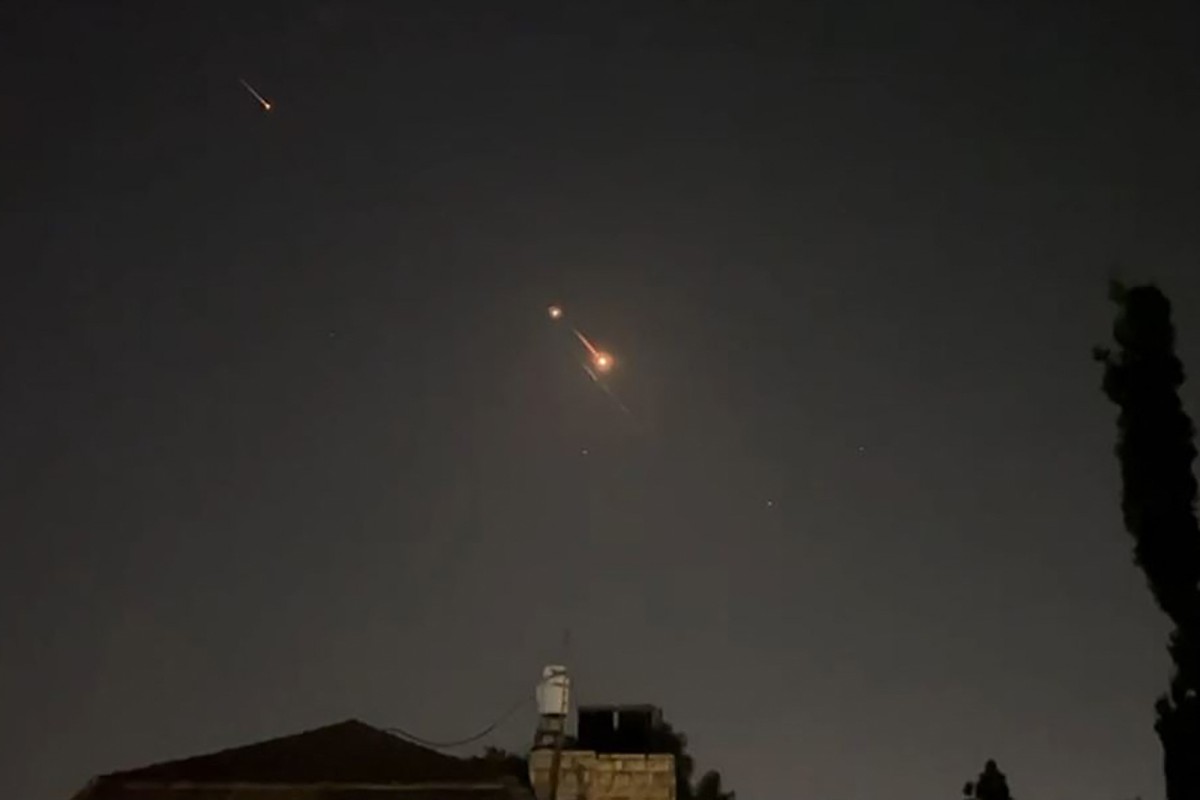
Nigeria, along with other international counterparts, on Sunday, urged Iran and Israel to exercise restraint amidst escalating tensions.
Over 300 drones and missiles were fired towards Israel in an attack late Saturday, injuring at least 12 people, according to an Israeli army spokesman, Daniel Hagari, in a televised statement on Sunday, AFP reports.
The Israeli military, in a statement, said “dozens of surface-to-surface missile launches” were identified, with the majority intercepted before crossing into Israeli territory.
The attack, according to Iran’s Revolutionary Guards, was a retaliation for a deadly April 1 drone strike on its Damascus consulate, confirming early Sunday that a drone and missile attack was underway against Israel.
The attack came as the Israel-Hamas war raged in besieged Gaza.
Countries around the world condemned Iran’s strikes on Israel, warning the attack could further destabilise the Middle East.
Nigeria, in a statement signed by the spokesperson of the Ministry of Foreign Affairs, Francisca Omayuli, on Sunday, noted that diplomatic efforts were underway to defuse the situation and prevent a broader conflict in the Middle East.
Omayuli advised that both nations must consider the global commitment to peaceful conflict resolution for the betterment of global peace and security.
“The Federal Government of Nigeria joins other Members of the International Community to call on Iran and Israel to exercise restraint, as diplomatic efforts are ongoing to ease tension and avoid a wider conflict in the Middle East.
“In this critical period, it behooves the two countries to reflect on the universal commitment to peaceful resolution of conflicts, for the advancement of global peace and security,” the statement read.
Reacting to Iran’s attack, the United Nations Secretary-General Antonio Guterres condemned “the serious escalation.”
“I am deeply alarmed about the very real danger of a devastating region-wide escalation,” he added, calling on parties to “avoid any action that could lead to major military confrontations on multiple fronts in the Middle East.”
President of the European Commission Ursula Leyen called on Iran to “immediately cease” attacks, saying in a message on X, formerly Twitter, that “all actors must now refrain from further escalation and work to restore stability in the region.”
Foreign policy chief Josep Borrell said the bloc “condemns in the strongest terms” the attack, calling it “an unprecedented escalation and a threat to regional security.”
The G7 group expressed its “full solidarity and support to Israel and its people and reaffirm our commitment towards its security” according to a statement following video talks.
The G7, which groups the United States, Japan, Germany, France, Britain, Italy and Canada, also said on Sunday they would step up efforts to end that crisis.
“We demand that Iran and its proxies cease their attacks, and we stand ready to take further measures now and in response to further destabilising initiatives,” it said.
The spokesperson for the North Atlantic Treaty Organisation, Farah Dakhlallah, said the military alliance condemned Iran’s attack and was “monitoring developments closely,” warning it was “vital that the conflict in the Middle East does not spiral out of control.”
Beijing also urged restraint, calling the attack “the latest spillover of the Gaza conflict” and calling for the implementation of a recent UN Security Council resolution demanding a ceasefire.
“China calls on the international community, especially countries with influence, to play a constructive role for the peace and stability of the region,” it added.
US President Joe Biden promised “ironclad” support for Israel after holding an urgent meeting with top security officials.
“Our commitment to Israel’s security against threats from Iran and its proxies is ironclad,” Biden said on X, posting a picture of the meeting in the White House Situation Room.
White House National Security Council spokesman John Kirby said on NBC’s “Meet the Press” later that “we don’t want to see this escalate.”
“We’re not looking for a wider war with Iran,” he said.
United Kingdom Prime Minister Rishi Sunak condemned the “reckless” strikes, which he said “risk inflaming tensions and destabilising the region.”
He called for “calm heads to prevail” and added Britain will “be working with our allies to de-escalate the situation”.
Canadian Prime Minister Justin Trudeau said Ottawa “unequivocally condemns Iran’s airborne attacks”, adding, “We stand with Israel.”
Russia expressed “extreme concern over the latest dangerous escalation in the region” and urged all sides to “show restraint.”





